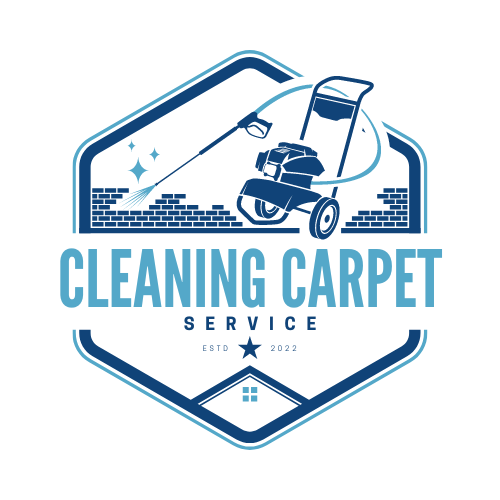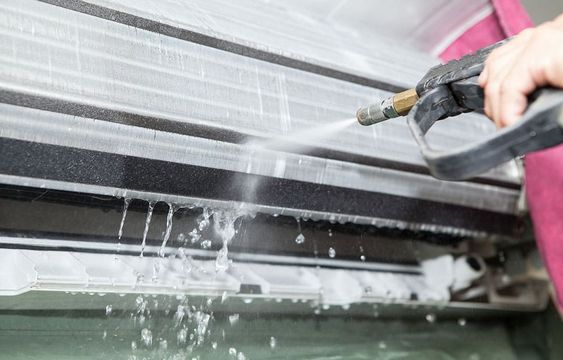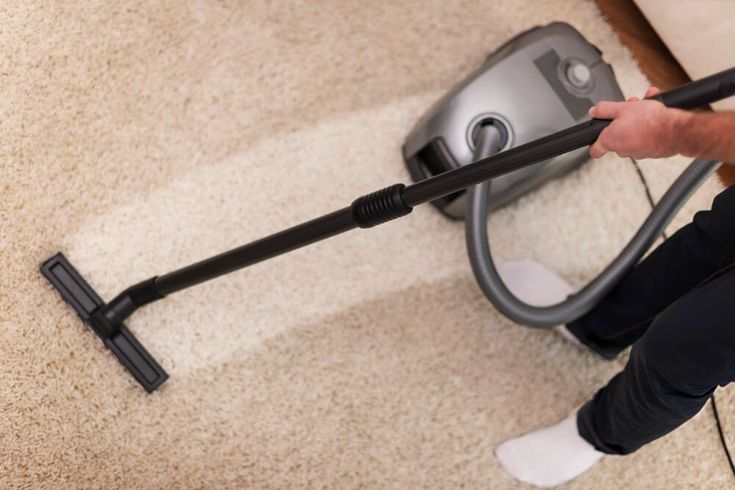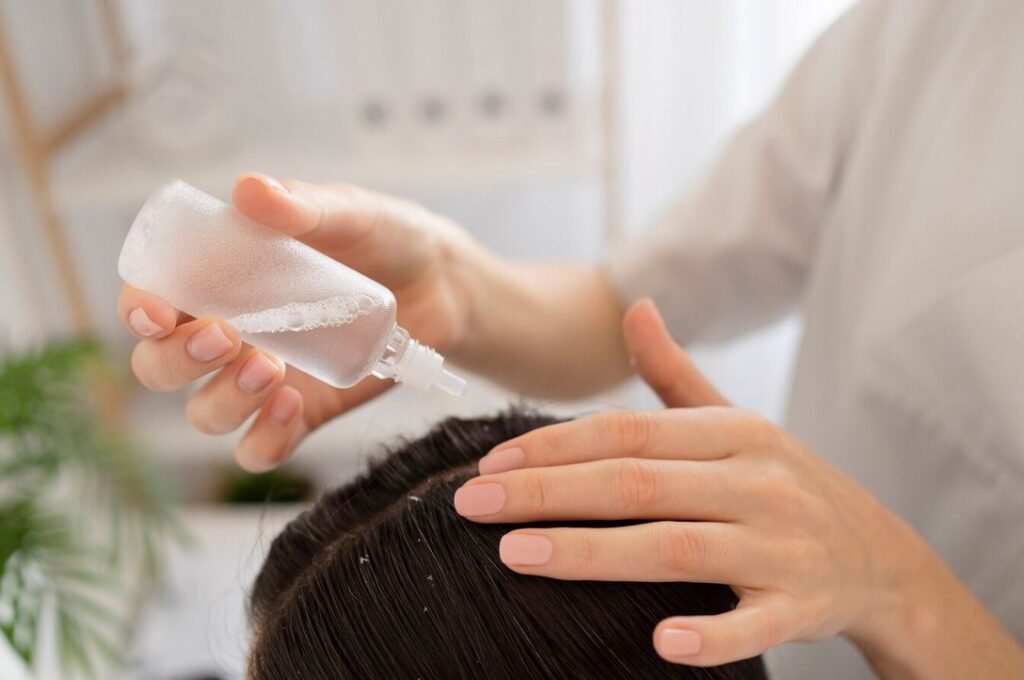
The scalp is an often overlooked part of our body when it comes to skincare, but it is just as important as the skin on our face and body. A healthy scalp is essential for maintaining strong, luscious hair. The scalp is the foundation for healthy hair growth, and when it is not properly cared for, it can lead to a variety of issues such as dandruff, dryness, itchiness, and even hair loss. Additionally, a healthy scalp can also contribute to overall well-being, as it can help prevent discomfort and irritation that can affect our daily lives. Therefore, understanding the importance of scalp health is crucial for maintaining not only beautiful hair but also a healthy and comfortable lifestyle.
A healthy scalp is essential for maintaining strong, luscious hair. The scalp is the foundation for healthy hair growth, and when it is not properly cared for, it can lead to a variety of issues such as dandruff, dryness, itchiness, and even hair loss. Additionally, a healthy scalp can also contribute to overall well-being, as it can help prevent discomfort and irritation that can affect our daily lives. Therefore, understanding the importance of scalp treatment is crucial for maintaining not only beautiful hair but also a healthy and comfortable lifestyle.
Identifying Common Scalp Issues
There are several common scalp issues that many people experience at some point in their lives. Dandruff is one of the most common scalp issues, characterized by flaky, itchy skin on the scalp. It is often caused by a combination of factors such as dry skin, sensitivity to hair products, or a yeast-like fungus called Malassezia. Another common issue is dry scalp, which can be caused by cold weather, excessive washing, or using harsh hair products. This can lead to itchiness and discomfort. On the other hand, oily scalp occurs when the sebaceous glands produce too much oil, leading to greasy hair and scalp. This can be caused by hormonal changes, genetics, or using the wrong hair products. Additionally, scalp psoriasis, a chronic skin condition that causes red, scaly patches on the scalp, requires specialized scalp treatment. It can be itchy and uncomfortable, and may even lead to temporary hair loss.
Dandruff is one of the most common scalp issues, characterized by flaky, itchy skin on the scalp. It is often caused by a combination of factors such as dry skin, sensitivity to hair products, or a yeast-like fungus called Malassezia. Another common issue is dry scalp, which can be caused by cold weather, excessive washing, or using harsh hair products. This can lead to itchiness and discomfort. On the other hand, oily scalp occurs when the sebaceous glands produce too much oil, leading to greasy hair and scalp. This can be caused by hormonal changes, genetics, or using the wrong hair products. Lastly, scalp psoriasis is a chronic skin condition that causes red, scaly patches on the scalp. It can be itchy and uncomfortable, and may even lead to temporary hair loss.
Choosing the Right Products for Scalp Care
Choosing the right products for scalp care is essential for maintaining a healthy scalp. When selecting shampoos and conditioners, it is important to look for products that are gentle and free from harsh chemicals that can strip the scalp of its natural oils. Look for ingredients like tea tree oil, salicylic acid, or ketoconazole which are known for their anti-fungal and anti-inflammatory properties that can help with dandruff and other scalp issues. Additionally, using a clarifying shampoo once a week can help remove product buildup and excess oil from the scalp. When it comes to styling products, opt for those that are lightweight and non-greasy to avoid clogging the hair follicles and causing scalp issues.
Choosing the right products for scalp care is essential for maintaining a healthy scalp. When selecting shampoos and conditioners, it is important to look for products that are gentle and free from harsh chemicals that can strip the scalp of its natural oils. Look for ingredients like tea tree oil, salicylic acid, or ketoconazole which are known for their anti-fungal and anti-inflammatory properties that can help with dandruff and other scalp issues. Additionally, using a clarifying shampoo once a week can help remove product buildup and excess oil from the scalp. When it comes to styling products, opt for those that are lightweight and non-greasy to avoid clogging the hair follicles and causing scalp issues.
Incorporating Scalp Massages into Your Routine
Scalp massages are not only relaxing but also beneficial for scalp health. Massaging the scalp helps to increase blood flow to the hair follicles, promoting hair growth and overall scalp health. It also helps to distribute natural oils throughout the scalp, preventing dryness and flakiness. You can incorporate scalp massages into your routine by using your fingertips to gently massage your scalp in circular motions while shampooing or applying oil to your hair. Alternatively, you can use a scalp massaging tool to help stimulate the scalp and promote relaxation. Regular scalp massages can help alleviate tension and stress while improving the overall health of your scalp.
Scalp massages are not only relaxing but also beneficial for scalp health. Massaging the scalp helps to increase blood flow to the hair follicles, promoting hair growth and overall scalp health. It also helps to distribute natural oils throughout the scalp, preventing dryness and flakiness. You can incorporate scalp massages into your routine by using your fingertips to gently massage your scalp in circular motions while shampooing or applying oil to your hair. Alternatively, you can use a scalp massaging tool to help stimulate the scalp and promote relaxation. Regular scalp massages can help alleviate tension and stress while improving the overall health of your scalp.
Incorporating Essential Oils for Scalp Health
Essential oils have long been used for their therapeutic properties, including promoting scalp health. Tea tree oil is known for its anti-fungal and antibacterial properties which can help with dandruff and other scalp issues. Peppermint oil has a cooling effect that can soothe an itchy scalp while promoting hair growth. Rosemary oil is believed to stimulate hair follicles and improve circulation to the scalp. Lavender oil has calming properties that can help reduce stress and tension which may contribute to scalp issues. When using essential oils on the scalp, it is important to dilute them with a carrier oil such as coconut or jojoba oil to avoid irritation. You can add a few drops of essential oils to your shampoo or create a DIY scalp treatment by mixing them with a carrier oil and massaging it into your scalp.
Essential oils have long been used for their therapeutic properties, including promoting scalp health. Tea tree oil is known for its anti-fungal and antibacterial properties which can help with dandruff and other scalp issues. Peppermint oil has a cooling effect that can soothe an itchy scalp while promoting hair growth. Rosemary oil is believed to stimulate hair follicles and improve circulation to the scalp. Lavender oil has calming properties that can help reduce stress and tension which may contribute to scalp issues. When using essential oils on the scalp, it is important to dilute them with a carrier oil such as coconut or jojoba oil to avoid irritation. You can add a few drops of essential oils to your shampoo or create a DIY scalp treatment by mixing them with a carrier oil and massaging it into your scalp.
Dietary and Lifestyle Changes for a Healthy Scalp
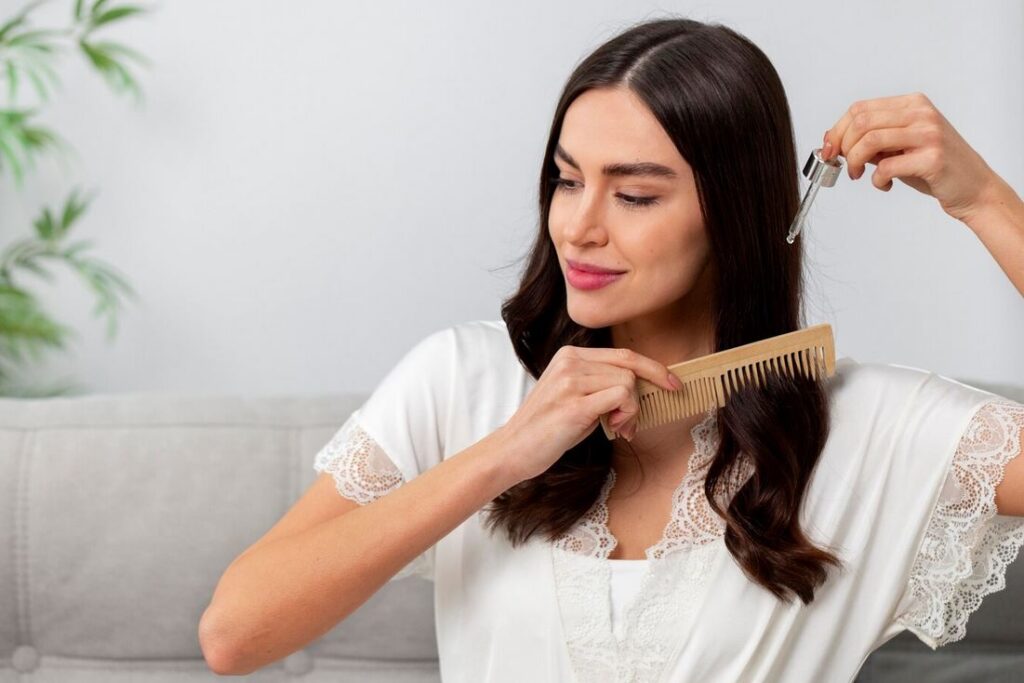
In addition to external care, making dietary and lifestyle changes can also contribute to a healthy scalp. Eating a balanced diet rich in vitamins and minerals such as vitamin A, C, E, and biotin can promote healthy hair growth and prevent scalp issues. Foods like leafy greens, nuts, eggs, and fatty fish are all beneficial for maintaining a healthy scalp. Staying hydrated is also important for overall skin health including the scalp. Additionally, reducing stress through activities like yoga, meditation, or exercise can help prevent stress-related scalp issues such as itchiness or flakiness. Avoiding excessive heat styling and over-washing the hair can also help maintain a healthy balance of natural oils on the scalp.
In addition to external care, making dietary and lifestyle changes can also contribute to a healthy scalp. Eating a balanced diet rich in vitamins and minerals such as vitamin A, C, E, and biotin can promote healthy hair growth and prevent scalp issues. Foods like leafy greens, nuts, eggs, and fatty fish are all beneficial for maintaining a healthy scalp. Staying hydrated is also important for overall skin health including the scalp. Additionally, reducing stress through activities like yoga, meditation, or exercise can help prevent stress-related scalp issues such as itchiness or flakiness. Avoiding excessive heat styling and over-washing the hair can also help maintain a healthy balance of natural oils on the scalp.
Seeking Professional Help for Severe Scalp Issues
If you are experiencing severe or persistent scalp issues despite trying various home remedies and over-the-counter products, it may be time to seek professional help from a dermatologist or trichologist. These specialists can diagnose underlying conditions such as psoriasis or eczema that may be causing your scalp issues and provide targeted treatments to address them. They may also recommend prescription-strength shampoos or topical treatments to manage severe dandruff or other conditions. In some cases, they may suggest procedures such as light therapy or steroid injections to alleviate symptoms. It’s important not to ignore persistent scalp issues as they may be indicative of more serious underlying conditions that require professional intervention.
If you are experiencing severe or persistent scalp issues despite trying various home remedies and over-the-counter products, it may be time to seek professional help from a dermatologist or trichologist. These specialists can diagnose underlying conditions such as psoriasis or eczema that may be causing your scalp issues and provide targeted treatments to address them. They may also recommend prescription-strength shampoos or topical treatments to manage severe dandruff or other conditions. In some cases, they may suggest procedures such as light therapy or steroid injections to alleviate symptoms. It’s important not to ignore persistent scalp issues as they may be indicative of more serious underlying conditions that require professional intervention.
In conclusion, maintaining a healthy scalp is crucial for overall well-being and beautiful hair. Understanding common scalp issues and how to address them with proper care products, massages, essential oils, dietary changes, lifestyle adjustments, and seeking professional help when necessary are all essential steps in achieving optimal scalp health. By incorporating these practices into your routine, you can ensure that your scalp remains healthy and free from discomfort while promoting strong and luscious hair growth.
In addition, it is important to remember that everyone’s scalp is unique, and what works for one person may not work for another. It may take some trial and error to find the best routine and products for your scalp. Patience and consistency are key in maintaining a healthy scalp, and the results will be well worth the effort. Ultimately, by prioritizing scalp health, you are not only taking care of your hair, but also contributing to your overall health and well-being.
If you’re looking for more tips and advice, be sure to check out this article.
